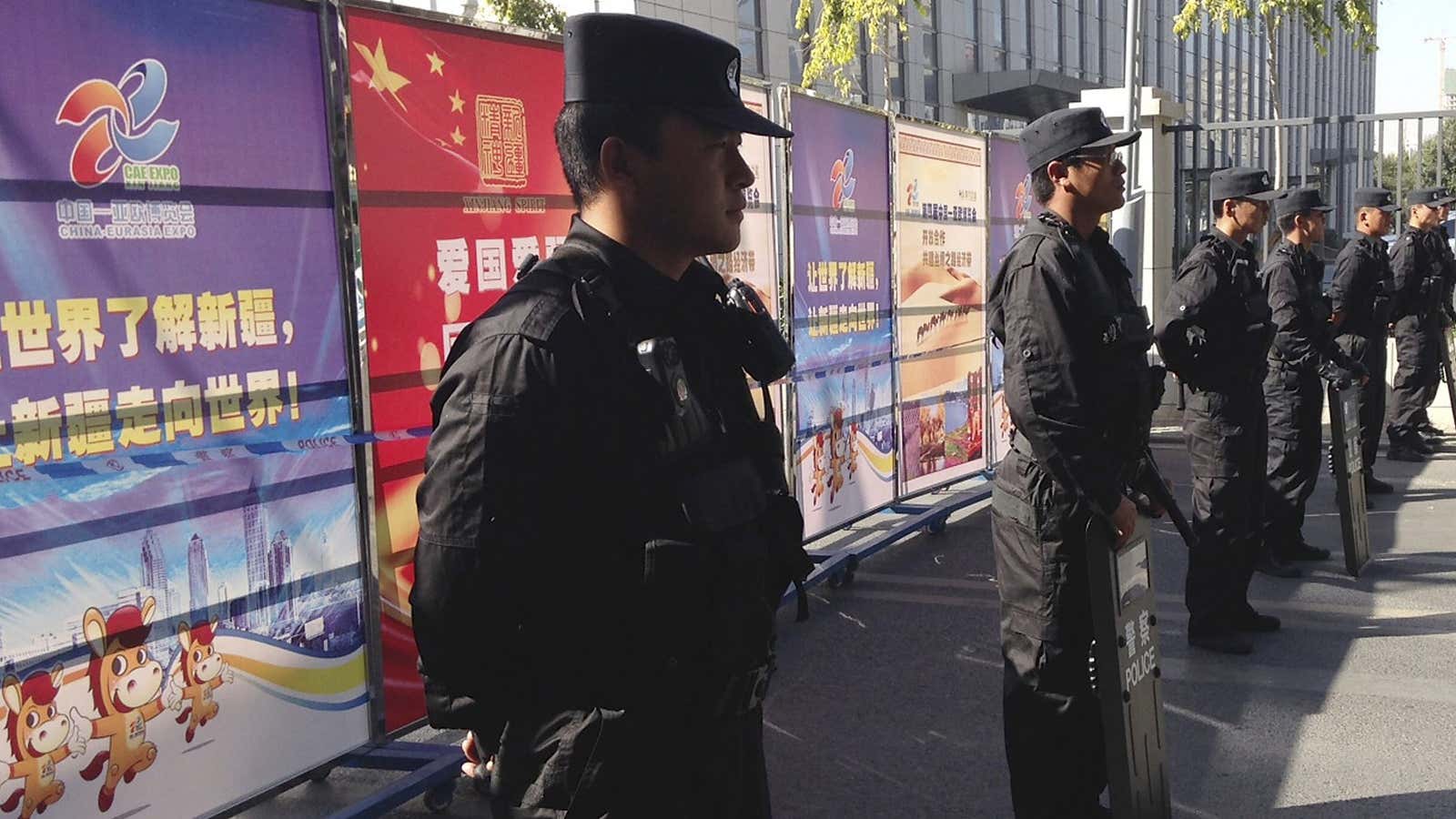A new law approved yesterday (April 28) in Beijing means that foreign civic groups will now have to submit to police registration and surveillance. Among other things, the controversial move will cast a pall on a high-profile event Beijing considers key to cementing its reputation as a global power: the G20 summit in Hangzhou.
As diplomats, business leaders, and various luminaries confirm their participation in the September event, invitations to independent Chinese and some international civil society organizations aren’t likely to turn up in the mail.
With just four months to go before the summit, China has quietly agreed to make a bit of room for some civil society—but only that which is palatable to the authorities, unlike past G20s, which welcomed or tolerated considerably more diverse views. This risks shutting out the people G20 governments are supposed to be representing. But it also risks making other G20 participants, most of whom routinely interact with civil society, appear accepting of Beijing’s hostility toward independent, critical voices.
Civil society groups are not fringe actors. In several G20 countries, the civil society sector constitutes 5% to 7% of GDP (pdf), and independent groups now play a critical role in developing policy and delivering public services such as health, education, and development—and in holding governments accountable (pdf). The 2015 G20 leaders’ communique began with acknowledgement that “advancing inclusive growth and entrenching confidence require the use of all policy tools and strong engagement with all stakeholders.”
Not inviting independent Chinese civil society groups would be a step backward. Earlier the G20 was criticized for having agendas set exclusively by governments. It responded by making room at the table for “engagement groups” representing civil society, labor, business, think-tanks, women, and youth—a “C20” summit to complement the G20. The first C20 took place in Russia in 2013, though the Russian government sought to tightly control the process. But in 2014 Australia raised the bar by helping underwrite and expand the work of civil society groups that would contribute to G20 gatherings, and in 2015 Turkey also permitted civil society participation.
It’s not surprising that in president Xi Jinping’s China there appears to be no room for a critical C20. His government is in the midst of the most ferocious crackdown on civil society in many years. Some of those suffering its sting include the kinds of voices the Chinese Communist Party has long loathed: prominent muckraking journalists like Gao Yu, sentenced in 2015 to seven years in prison for allegedly “providing state secrets” to people outside China, or internationally recognized Uyghur economist Ilham Tohti, who began serving a life sentence in 2014 after he called for peaceful inter-ethnic dialogue. “Rights defense” lawyers, feminists, writers, and artists—all have endured harassment and even imprisonment in recent years. Those working on G20 issues such as inequality and discrimination are no less at risk.
One of Xi’s signature initiatives is his campaign against corruption, which is identified as a priority of this year’s G20. There is a need for a serious discussion on applying the anti-corruption laws fairly and impartially—and not as a populist campaign to target political opponents, as Xi is now doing. But without mainland anti-corruption activists present and free to speak, this won’t happen. Not only should the Chinese government invite independent civil society groups, but it should also free the half-dozen members of the New Citizens Movement, a loose group encouraging civic participation, who are serving one to four year sentences for calling on officials to publicly disclose their assets.
A G20 host is just one among many group members. China’s hosting of the summit shouldn’t mean other members have to dance to its tune. G20 governments—and the World Bank, businesses, and others attending—should press Beijing to make the Hangzhou gathering as open as possible. And, if they aspire to helping China become a predictable, economic player, they should also be calling for an end to the crackdown.
In December 2015, president Xi stated that “China will attach great importance to and take advice and suggestions from non-G20 members.” Independent civil society groups in China and abroad should not have to wait by their mailboxes, wondering whether they will have the chance to participate.




